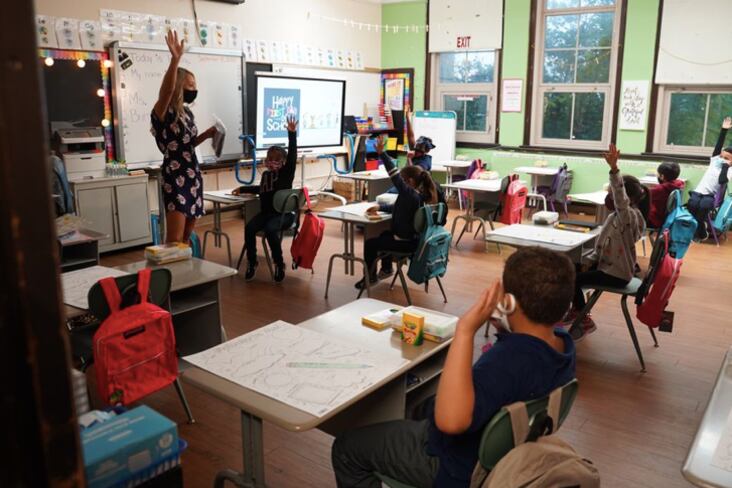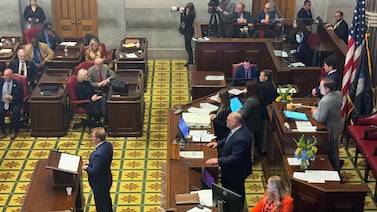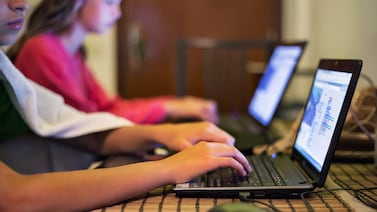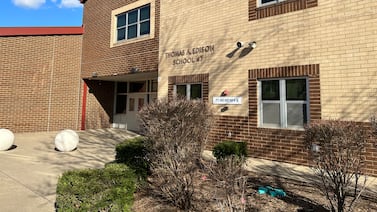The Detroit school district hopes to resume in-person learning by early to mid-February if the number of COVID-19 cases in the city declines significantly. Online classes resumed Monday.
“Although the state’s and city’s positive rates have declined since November, they are still too high,” district Superintendent Nikolai Vitti said in a statement released Monday.
As of Dec. 28, Detroit’s rate of positive COVID-19 cases is 6.6%, according to the city’s health department.
Nearly 50,000 students in the Detroit Public Schools Community District have had the option of learning online since November, when officials suspended in-person learning due to a growing number of COVID-19 cases across the city.
If the rate falls below 5% and stays at that threshold, Vitti said the district will reopen its learning centers by middle to late January. The centers are located inside all school buildings, where students took their virtual classes with support staff supervision.
District officials will also survey students and teachers for their preferred learning option.
The potential return to in-person learning next month marks the second reopening effort for the district in the 2020-2021 academic year. The district, along with schools across the nation, has seen an increase in failing grades during the pandemic, so offering in-person instruction may help students struggling to learn over a screen. Opening school buildings may also provide relief to some working parents who may not be able to support learning at home.
Before the holiday break, the state lifted a ban on in-person learning at high schools due to a prior surge in COVID-19 cases. While Detroit is delaying the return to physical classrooms, some districts, including those in Rockford and Grand Rapids, will roll out a hybrid learning option this month, allowing students to take classes both in person and online.
In Detroit, union officials representing teachers are working with the district to closely monitor local public health data and make safety recommendations.
“We’ve said this from the beginning: There’s no substitute for face-to-face learning. But we’re not there yet,” said Terrence Martin, the president of the Detroit Federation of Teachers, which represents nearly 4,000 teachers. “Our main objective is the health and safety of our students and staff.”
Before school buildings closed, about 75% of students were learning online, while 25% were learning in person, which also includes those taking classes at the learning centers. Teachers also had the option to work remotely. In December, the district opened 13 technology and resource hubs across the city to provide students and families technical support with devices, meals, medical help, and other services.







